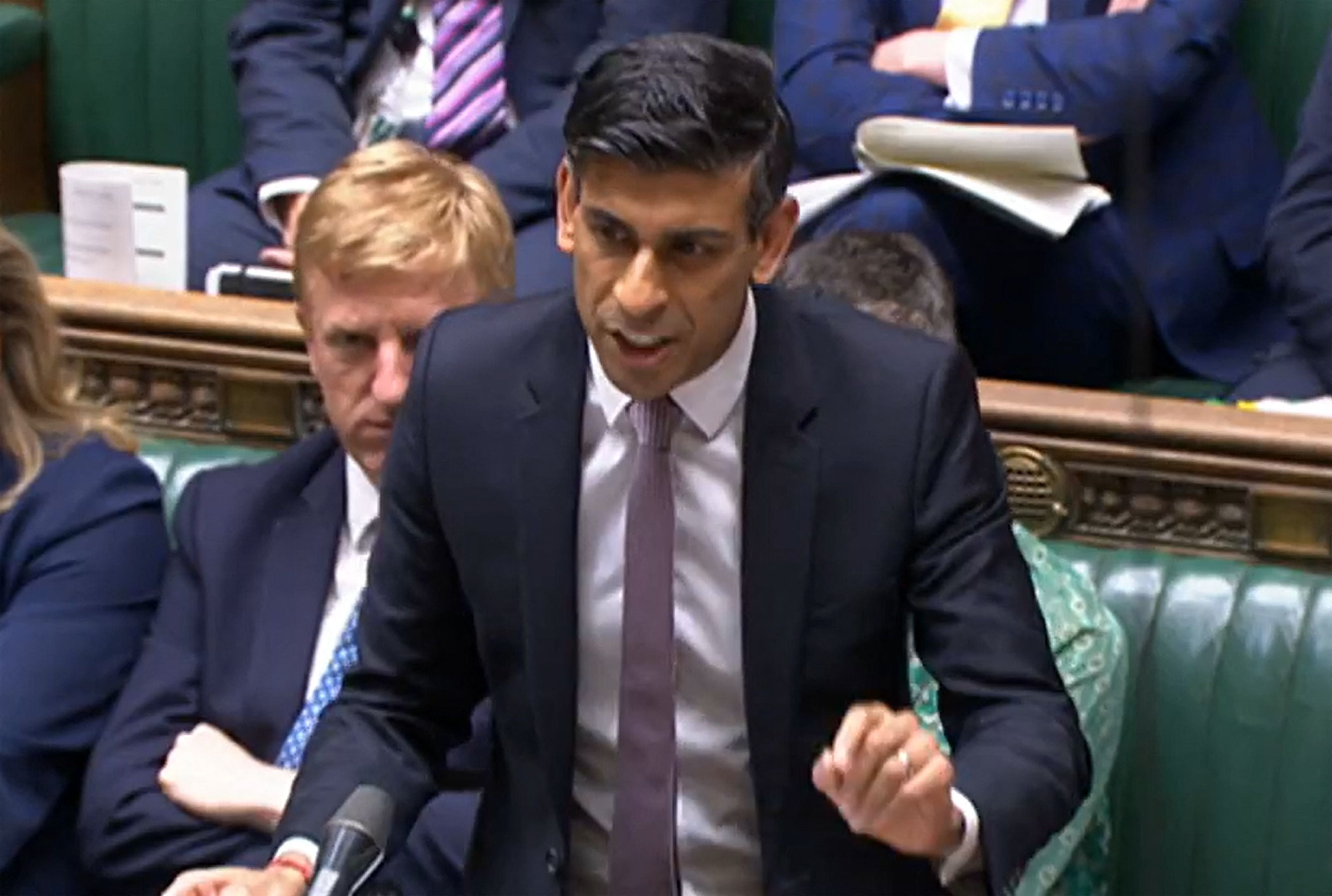Fragile growth is not enough to keep Sunak in Downing Street
A mortgage squeeze could dash Tory election hopes, says Sean O’Grady


It’s the economy, stupid”, was the slogan coined by the brilliant Democrat strategist James Carville during Bill Clinton’s first run for the White House in 1992. Pinned to the wall of campaign HQ, it was a reminder that elections are usually won and lost on pocketbook issues. As the Bank of England is widely expected to raise interest rates again, the question is whether an improving economy will come to the rescue of a beleaguered Rishi Sunak.
The economy is growing, isn’t it?
It depends which figure you pluck from the tables. Preliminary GDP for May indicates a 0.2 per cent increase in the value of goods and services produced in the UK in April. But it follows a contraction of 0.3 per cent in March. On a rolling quarterly basis, over the three months to April, the economy only expanded by 0.1 per cent, an annualised equivalent of 1.2 per cent. While that’s in line with a range of forecasts that Britain should avoid recession this year, it means growth remains anaemic. Some growth comparisons with Europe put the UK in a favourable light, but that may be because countries such as Germany rely much more on Russian oil and gas. But Britain is growing, unemployment is low and consumer confidence is recovering.
So what’s the problem?
Inflation. Growth in activity, albeit modest, and labour shortages are pushing wages higher – by 7.2 per cent on the year according to the latest data. This is behind price rises, but still relatively good news for workers. The hefty downside is it means wage cost pressures for businesses (salaries account for 70 per cent of costs to business, overall). Hence also the wave of strikes as the public sector in particular attempts to defy market forces. Such pressures are weighing heavily on ministers and Bank of England policymakers. It means that they will continue to bear down on inflation by keeping taxes high, public spending constrained and a continual trend to ever higher interest rates. Indeed, the financial markets have already anticipated the trend and pushed UK government debt yields higher.
Why is there such a labour shortage?
Despite historically high net migration numbers, Brexit saw an exodus of established labour; post-pandemic illnesses such as long Covid have also reduced those able to work full-time; and more workers are taking early retirement, cashing in on successive housing booms and George Osborne’s “pension freedoms”. The economy can’t grow that easily without enough people (at least until AI arrives properly).
What will the Bank of England do?
Having been stung by some criticism that it’s been “behind the curve” on inflation (largely down to Vladimir Putin’s surprise war in Ukraine), the Bank is now applying unrelenting pressure by hiking rates, with another quarter percentage point rise widely expected, taking the Bank Rate to 4.75 per cent. Some think it will head even higher in the coming months – to 5.75 per cent or more. The aim is to take spending power out of the economy, so firms can’t afford to increase prices even if they want to. To borrow another phrase from the early 1990s, this time coined by John Major when chancellor: “If it isn’t hurting, it isn’t working.”
Who gets hit hardest?
Classic aspirational Conservative voters trying to buy their own home with a huge mortgage, and small businesses reliant on banks for working capital. In particular, the 1.4 million borrowers who this year will come off their fixed rate mortgages and face huge increases, to be followed by another 1.2 million in 2024.
What is the best case scenario, politically?
That inflation really does now tumble faster than expected, meeting Mr Sunak’s key pledge to halve inflation – down to about 5 or 6 per cent by the year-end. Ideally this can be done with interest rates peaking now, and the economy still managing to expand a bit. With luck, and thanks to the emergency measures after the Truss-Kwarteng experiment, there will be room for tax cuts from Jeremy Hunt in next spring’s budget.
And the worst?
Ominously, the latest data shows that builders and estate agents are having a rotten time, and the worst possible outcome for a pro-property owning party such as the Conservatives is a slowdown in real estate that turns into a crash, with innocent householders suddenly lumbered with unaffordable mortgages on devalued homes – the dreaded negative equity.
It’s just about possible that a crisis in real estate would leave people so fearful they wouldn’t risk a Labour government, but only if they could be persuaded that Keir Starmer and Rachel Reeves would actually make things even worse. However, “vote for us because the other lot are even worse” doesn’t sound like a plausible election pitch. Otherwise, Mr Sunak and Mr Hunt may soon experience first-hand the brutal wisdom of Mr Carville’s maxim.






Join our commenting forum
Join thought-provoking conversations, follow other Independent readers and see their replies
Comments